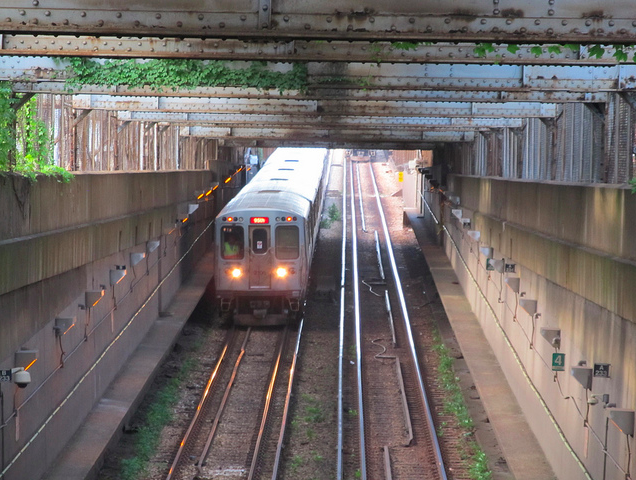African-American Chicagoans Self-Report Weekly Commutes 70 Minutes Longer Than Whites
By Jon Graef in News on Feb 22, 2014 8:45PM
The University of Chicago's Virginia Parks, an urban geographer, talked to The Atlantic's Emily Badger about the work she did analyzing self-reports from the Census Bureau's American Community Survey in 2011. The survey asks people to report on how long their average commutes are.
Parks took the data and focused it on Chicago's working poor -- defined by Badger as "employed people living and commuting from households that earn less than 200 percent of the federal poverty line."
According to Badger, Parks further broke the data down along race. What Parks ffound was illuminating, though perhaps not surprising giving Chicago's history as a racially segregated city.
Blacks self-report longer commutes than their white counterparts, traveling to presumably the same jobs."These are folks who are all employed in low-wage work, and yet African Americans still have to travel further, which means that more of their wage has to cover the commute," Parks says. "They’re taking home less money at the end of the day, even given a pretty low-wage job."
Using ACS data from 2011, black low-wage workers spent about seven minutes more one-way on their commutes than white low-wage workers in metropolitan Chicago. That's about 14 minutes a day, or 70 minutes a week.
According to Parks, the commutes for African-American women average out to be 10 minutes longer per week than that. As Badger points out, "[t]hat's 80 minutes that can't be spent on overtime work, or running errands, or supervising homework." In turn, Parks notes that those women also have to pay "80 minutes of extra daycare" as well.
Parks has three theories as to why this commute discrepancy exists, and Badger paraphrases those as such:
Economists reason that women and minorities often have to travel further to find the same job opportunities as whites, assuming that non-discriminatory employers are fewer and harder to find than those who'd hire a white man. The other two challenges speak directly to the communities in Chicago where minorities often live: Not only do they lack jobs close to home, but they also lack good access to transit to connect them to work elsewhere.
Of course, this data comes from 2011. That means it's before the Red Line South Side expansion, which would help expedite commutes, and before Whole Foods opens up its location in Englewood, which would create jobs closer to where African-Americans actually live. Additionally, Mayor Emanuel and activist Pierre A. Clark are trying to make South Side neighborhoods like Woodlawn to be the first to have "ultra high-speed gigabit web access," which would no doubt help budding web entrepreneurs launch their ideas.
All of that represents progress. But, given Chicago's hypersegration, that may be putting a band-aid on a head wound. Better than nothing, but not enough to clearly meet the challenge at hand. We suppose only time will tell how Chicago intends to better the lives of its African-American communities,
